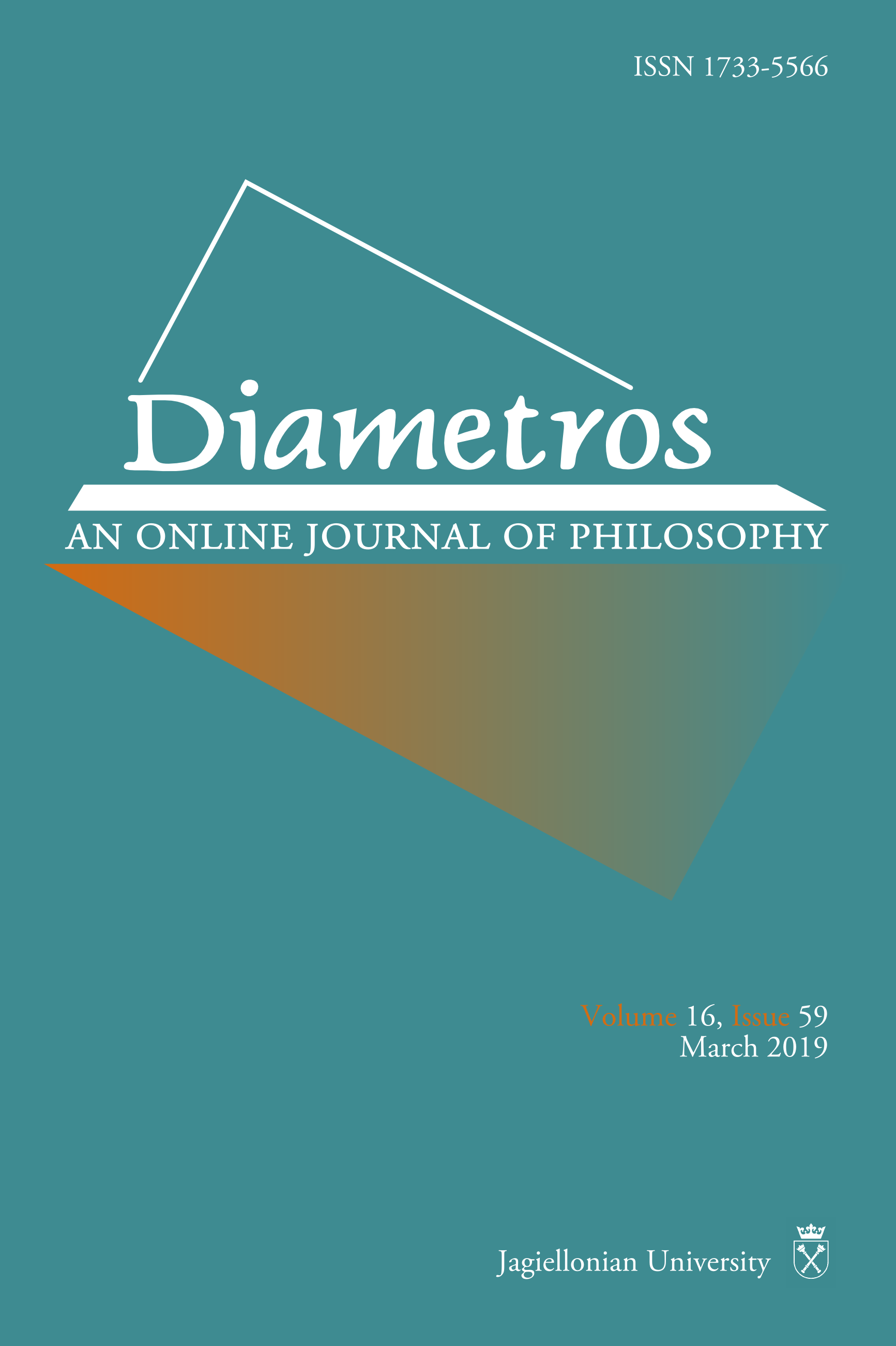Sensus divinitatis as a Theory of Theistic Belief Formation
Main Article Content
Abstract
Alvin Plantinga's notion of sensus divinitatis ("sense of divinity") refers to a human cognitive faculty designed to produce theistic beliefs that have warrant (positive epistemic status). While most of Plantinga's commentators focus on whether introducing this notion really helps to defend the rationality of theistic beliefs, the genetic aspect of the operation of the sensus divinitatis is often overlooked. This paper is devoted to fill this gap. On the basis of Plantinga's opus magnum titled Warranted Christian Belief, I distinguish three different interpretations of how sensus divinitatis creates theistic beliefs. I also analyse the ways in which human sin impairs the proper functioning of this sense of divinity in each of these interpretations.
Downloads
Article Details
By submitting his/her work to the Editorial Board, the author accepts, upon having his/her text recommended for publication, that Diametros applies the Attribution 4.0 International (CC BY 4.0) license to the works we publish. Under this license, authors agree to make articles legally available for reuse, without permission or fees. Anyone may read, download, copy, print, distribute or reuse these articles without asking prior permission from the publisher or the author, as long as the author and original source are properly cited. The author holds the copyright without any other restrictions. Full information about CC-BY: https://creativecommons.org/licenses/by/4.0/legalcode.
References
Alston W. (1991), Perceiving God. The Epistemology of Religious Experience, Cornell University Press, London/Ithaca.
Barrett J.L., Clark K.J. (2011), Reidian Religious Epistemology and the Cognitive Science of Religion, „Journal of the American Academy of Religion” 79 (3): 639–675.
Beilby J. (2007), Plantinga's Model of Warranted Christian Belief, [w:] A. Plantinga, D.-P. Baker (red.), Cambridge University Press, New York: 125-165.
Chisholm R. (1994), Teoria poznania, tłum. R. Ziemińska, Instytut Wydawniczy „Daimonion”, Lublin.
De Cruz H., De Smedt J. (2013), Reformed and evolutionary epistemology and the noetic effects of sin, „International Journal for Philosophy of Religion” 74: 49–66.
Dougherty T., McAllister B. (w przygotowaniu), Reforming Reformed Epistemology. A New Take on the Sensus Divinitatis, udostępnione dzięki uprzejmości Autorów.
Hume D. (1977), Badania dotyczące rozumu ludzkiego, tłum. J. Łukasiewicz, K. Twardowski, oprac. A. Hochfeldowa, Państwowe Wydawnictwo Naukowe, Warszawa.
Mavrodes G. (1988), Revelation in Religious Belief, Philadelphia Temple Press, Philadelphia.
Pepliński M. (2010), Alvina Plantingi koncepcja racjonalności przekonań religijnych na tle głównych stanowisk w XX wiecznej analitycznej epistemologii religii, [w]: Rozum i przestrzenie racjonalności, A. Chmielecki (red.), Uniwersytet Gdański, Gdańsk: 99-127.
Plantinga A. (1983), Reason and Belief in God, [w:] Faith and Rationality, A. Plantinga, N. Wolterstorff (red.), Notre Dame University Press, Notre Dame: 16-93.
Plantinga A. (2000), Warranted Christian Belief, Oxford University Press, New York.
Schellenberg J. (w przygotowaniu), Is Plantinga-Style Christian Philosophy Really a Philosophy?, [w:] Christian Philosophy Today and Tomorrow. Conceptions, Continuations, and Challenges, A. Simmons (red.), wersja nieostateczna, URL = http://www.jlschellenberg.com/uploads/8/5/6/1/8561683/is_plantinga-style_christian_philosophy_really_philosophy.pdf [dostęp: 05.07.2017].
Tucker C. (2011), Phenomenal Conservatism and Evidentialism in Religious Epistemology, [w:] Evidence and
Religious Belief, K.J. Clark, R.J. Van Arragon (red.), Oxford University Press, New York: 52-74.
Ziemińska R. (2002), Eksternalizm we współczesnej epistemologii, Wydawnictwo Naukowe Uniwersytetu Szczecińskiego, Szczecin.




